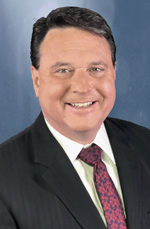Indiana Attorney General Todd Rokita on Monday led 16 states to demand that the Biden administration stop expanding the availability of welfare assistance to non-citizens by redefining the way the federal government applies “the public charge ground of inadmissibility.”

Rokita
“If Joe Biden showed half the concern for U.S. citizens that he shows for non-citizens wanting to enter our country, he might actually do something good for America,” Rokita said. “Instead of inspiring them to embrace the American Dream, he is encouraging dependency on government and saddling working-class taxpayers with the bill … By weakening the public charge rule, DHS will exacerbate this already explosive situation. Biden seems determined to make things worse rather than better.”
Under the law, any non-citizen seeking legal admission to the U.S. (or updates to their status or visa while residing here) must show that they are not likely to become a “public charge.” President Biden is proposing that DHS eliminate consideration of most welfare benefits that do not constitute direct cash assistance when making this determination.
In promoting such a change, DHS would ignore the fact that illegal immigrants may still be dependent on costly benefits even if not primarily relying on cash benefits for income subsistence.
Non-cash benefits include such programs administered and supported in Indiana as the Children’s Health Insurance Program (“CHIP”), Supplemental Nutrition Assistance Program (“SNAP”), Medicaid, and most federal housing or rental assistance programs.
“The purpose of the public charge rule is that we don’t want aliens coming to the United States and becoming a burden on our taxpayers,” Rokita said. “This proposed rule is contrary to our national principle of self-sufficiency.”
Rokita expressed his concerns in a letter he sent to the U.S. Citizenship and Immigration Services after enlisting the signatures of likeminded attorneys general from Alabama, Arizona, Arkansas, Georgia, Kansas, Kentucky, Louisiana, Mississippi, Missouri, Montana, North Dakota, Oklahoma, South Carolina, Utah, and West Virginia.
